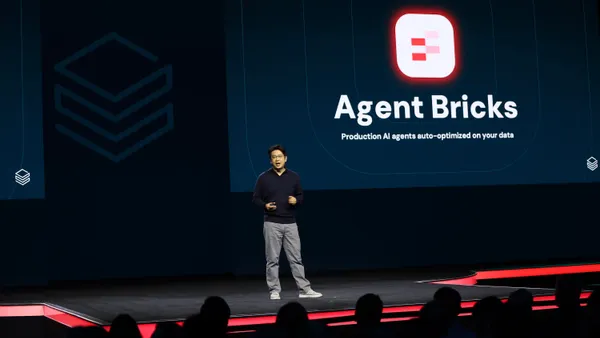Dive Brief:
- Cloudera, maker of an enterprise cloud platform, plans to adjust its licensing policy toward a full open-source model by February 2020, the company announced Wednesday.
- The move intends to empower developers to "build on the platform, by exposing its implementation," while insulating customers from "lock-in and bad vendor behavior," according to the company's licensing policy update.
- The policy update will create a unified model that aims to retain customers of Hortonworks, another big data company, which was formally acquired by Cloudera in January.
Dive Insight:
A post-acquisition Cloudera, one that is looking to regain its footing after a disappointing earnings report and a CEO departure, sees open source as a silver bullet.
Making its software products available through open source can help boost adoption amid a Hadoop market contraction, while helping retain customers in the aftermath of its acquisition.
In turn, broader Cloudera adoption will mean a bigger pool of potential customers that can pay for additional services like dedicated support or consulting.
This strategy has worked for Amazon Web Services, Microsoft and others. Most recently, IBM finalized a $34 billion move aimed at expanding its presence in the open source space: the acquisition of enterprise software company Red Hat.
"As that market becomes more complex and crowded, the new Cloudera wants to be able to tell a strong, clear, clean story about taking open source software and then using experienced people to work with their customers to get the most from that software," said Paul Miller, principal analyst at Forrester, in an email to CIO Dive.
Additionally, the move seeks to protect the existing base of Hortonworks customers. "Open sourcing everything achieves both those aims," said Miller. "The company must now double down, to demonstrate that it can hit its numbers solely on the basis of getting customers to pay for help using this software."














